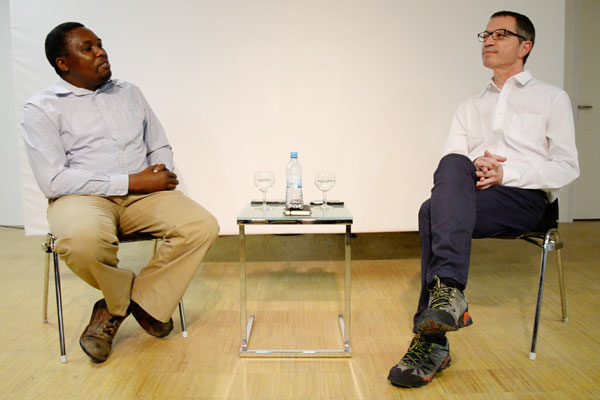

BY SHARON SIBINDI
National Gallery of Zimbabwe’s Bulawayo assistant curator Clifford Zulu has been a guest at Ebenböckhaus in Munich, Germany, for a month where he took part in an exhibition dubbed Echoing Silences — Zimbabwe as Metaphor by Andreas Wutz.
Echoing Silences — Zimbabwe as Metaphor is an interdisciplinary art and exhibition project on the history of violence using the example of the Zimbabwean War of Liberation and its traumatic aftermath in a pos-tcolonial African society.
In an interview with Standard Style, Zulu said the project investigates and considers this history of violence using images and texts from natural sciences such as botany, geology and paleontology, and an archaeology of private everyday objects.
“The exhibition included photographs and texts, film and video screenings, a library, a film programme. I did the introductory artiste talk and the exhibition was based on long-term research in various places in Zimbabwe, particularly in Chimanimani, Mutare, Harare and Bulawayo,” he said.
“The research included places in nature as well as local archives, museums, libraries and other institutions. The title Echoing Silences — Zimbabwe as Metaphor, refers to the huge number of unspoken individual memories that form a collective trauma and don’t find a place in the history books.”
Zulu said history can be written, but memory is based on images that need to be expressed individually and very often fail to find an adequate form, the history of violence in Zimbabwe (the liberation war 1964-79, including the ethnic cleansing in Matabeleland 1982-88), is still afflicting unconsciously each individual.
“A traumatised war generation passes on its trauma to the post-war generation. Speaking about such a trauma, finding words for it, is difficult in Zimbabwe and elsewhere. The topic is sensitive and the generation-spanning silence seems to be both psychologically and politically motivated,” he said.
- Chamisa under fire over US$120K donation
- Mavhunga puts DeMbare into Chibuku quarterfinals
- Pension funds bet on Cabora Bassa oilfields
- Councils defy govt fire tender directive
Keep Reading
“Therefore Echoing Silences — Zimbabwe as Metaphor approaches the topic carefully in an uncommon way by using documents of the history of a secondary order, such as natural history [Invisible Landscape] or archaeology of private everyday objects [My Object Tells].”
Zulu said the Germany trip came after they hosted a visiting artist called Wutz who is a digital artist and media researcher and had come as a first international resident artist for their visiting artists residency programme.
“We agreed that I was going to visit Germany and also put up an exhibition about his residency here in Bulawayo, particularly about the research that he did, workshops that he conducted here with young artists in Bulawayo,” he said.











